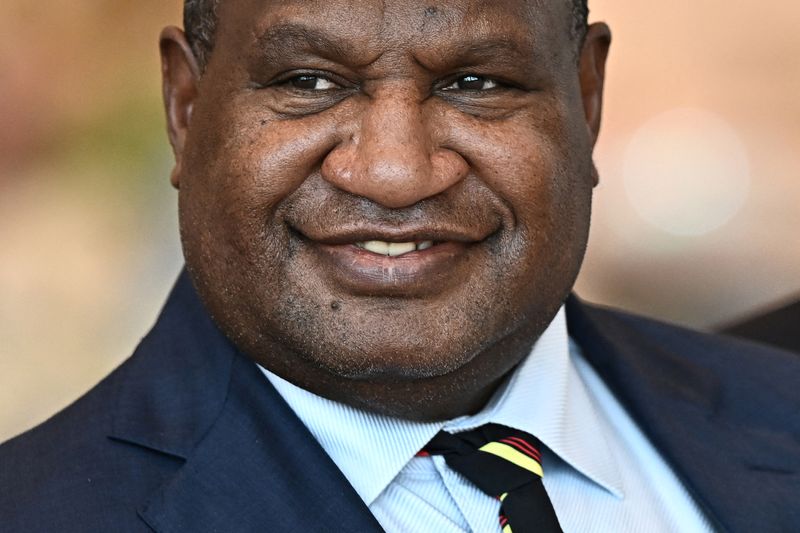By Kirsty Needham
SYDNEY (Reuters) -Papua New Guinea said a proposed security treaty with neighbour Australia would be delayed as it consults "domestic processes", a week after signing a defence agreement with the United States that sparked student protests.
Papua New Guinea (PNG), a few kilometres (miles) to Australia's north, is being courted by China and the United States amid rising tensions between the two major powers.
Washington and its allies are concerned about Beijing's security ambitions in the strategically located Pacific Islands region, after Beijing struck a security pact with Solomon Islands.
PNG Prime Minister James Marape met with Australia's Defence Minister Richard Marles on Monday on the sidelines of the Korea-Pacific Islands Summit in Seoul and discussed the "proposed bilateral security treaty", Marape's office said in a statement on Tuesday.
"It is a work in progress and requires the PNG side to consult our domestic processes and sovereign laws in relation to certain wordings and provisions," the statement said.
Marape had "conveyed his apologies to Prime Minister Anthony Albanese for the delay in formalising this proposed Treaty with Australia", it said.
Negotiations with Australia on upgrading defence ties to a security treaty - which would need to be ratified by parliament - had been expected to be finished by April, Marape and Albanese said in a joint statement in January.
Australia is PNG's biggest aid donor and Marape's government last year sought to upgrade a defence cooperation agreement. Marles has said Australia wants to strike an "ambitious" security treaty that will see navy, air force and army personnel from each nation working alongside each other more often.
PNG's defence ties have come under intense domestic political scrutiny in the past week after the U.S. agreement was signed during a visit by United States Secretary of State Antony Blinken. The deal was criticized by opposition politicians who said it could embroil PNG in strategic competition between the United States and China.
The Chinese navy has been deploying ships near Australia twice a year, including in northern waters and its exclusive economic zone, Chief of Defence Force Angus Campbell told an Australian parliament hearing on Tuesday.
Chinese navy ships have travelled down Australia's east and west coasts, across its south returning from the Indian Ocean, and monitored major Australian navy exercises, he said.
"We are seeing a gradual increase in rate of presence from the PLA Navy," said Hugh Jeffrey, deputy secretary of Australia's Department of Defence.
